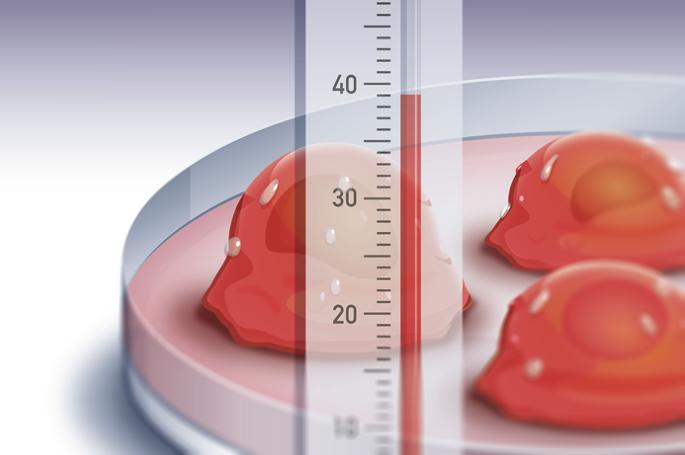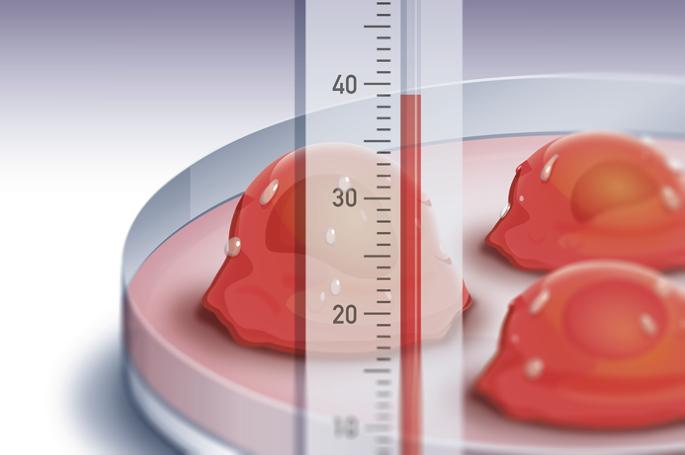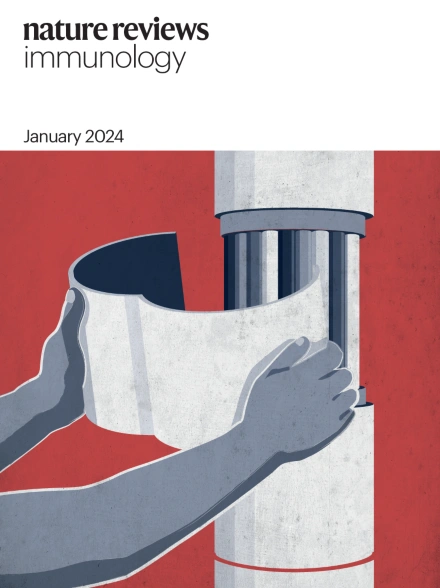发烧会影响 T 细胞的命运
IF 67.7
1区 医学
Q1 IMMUNOLOGY
引用次数: 0
摘要
发热会破坏新陈代谢,并在 T 辅助细胞 1 亚群中诱发不成比例的 DNA 损伤。凋亡后存活下来的细胞会通过增加线粒体质量和 DNA 损伤反应来适应环境,从而增强效应功能。本文章由计算机程序翻译,如有差异,请以英文原文为准。


Fever affects T cell fate
Febrile temperatures disrupt metabolism and induce DNA damage disproportionately in T helper 1 cell subsets. Cells that survive apoptosis and adapt by increasing their mitochondrial mass and DNA damage responses gain enhanced effector functions.
求助全文
通过发布文献求助,成功后即可免费获取论文全文。
去求助
来源期刊

Nature Reviews Immunology
医学-免疫学
CiteScore
93.40
自引率
0.40%
发文量
131
审稿时长
6-12 weeks
期刊介绍:
Nature Reviews Immunology is a journal that provides comprehensive coverage of all areas of immunology, including fundamental mechanisms and applied aspects. It has two international standard serial numbers (ISSN): 1474-1733 for print and 1474-1741 for online. In addition to review articles, the journal also features recent developments and new primary papers in the field, as well as reflections on influential people, papers, and events in the development of immunology. The subjects covered by Nature Reviews Immunology include allergy and asthma, autoimmunity, antigen processing and presentation, apoptosis and cell death, chemokines and chemokine receptors, cytokines and cytokine receptors, development and function of cells of the immune system, haematopoiesis, infection and immunity, immunotherapy, innate immunity, mucosal immunology and the microbiota, regulation of the immune response, signalling in the immune system, transplantation, tumour immunology and immunotherapy, and vaccine development.
 求助内容:
求助内容: 应助结果提醒方式:
应助结果提醒方式:


